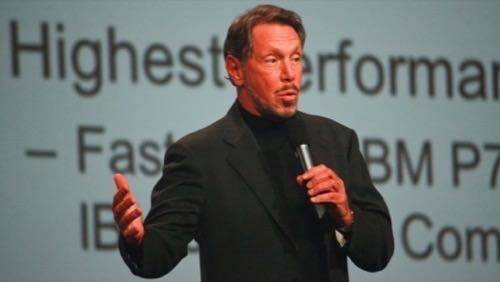
Oracle seems to have a problem with truth in advertising. Since April, the tech giant has had to pull three ads that claimed Oracle computers performed much better than IBM’s.
Each time, Oracle offered no proof of its claims and the ads were dropped after IBM complained to the National Advertising Division (NAD) of the Better Business Bureau (BBB). This sleazy behavior, called “strategically stupid” by one analyst, comes at a time when Oracle’s hardware business is only limping along.
Oracle’s Bad Behavior
The latest ad, pulled in November, said Oracle’s Exadata server would run five times faster than IBM’s Power Server “or you win $10,000,000.” The NAD found that the ad did not provide “any speed performance tests, examples of comparative system speed superiority or any other data to substantiate the message. NAD determined that the advertiser’s decision to permanently discontinue this advertisement was necessary and appropriate,” the organization said in a statement.
Oracle did not respond to a request for comment, but the NAD said that the vendor disagreed with the group’s findings. Oracle told the organization that it would take its “concerns into account should it disseminate similar advertising in the future.”
Oracle’s creativity in advertising appears to be more than the result of an overzealous ad exec. In July, the company got slapped by the NAD for saying a giant European retailer moved its database from an IBM Power server to Exadata and found it ran 20 times faster. Three months earlier, Oracle pulled an ad that made unsubstantiated claims that its SPARC SuperCluster T4-4 computer system ran Oracle apps and Java faster than IBM’s speediest computer. All the challenged ads ran as full-page spreads in The Wall Street Journal and other publications.
“Three similar rulings in a period of eight months seems like a trend to me,” said Jeff Cross, spokesman for IBM’s Systems and Technology Group.
Lying Is “Strategically Stupid”
Oracle’s decision to sign off on the ads was “strategically stupid,” Rob Enderle, president and principal analyst for the <a href= “http://www.enderlegroup.com/”target=”_blank”>Enderle Group,</a> said in a column for CIO magazine. Enderle argues that Oracle is risking its credibility with large corporations, where IT managers put their jobs on the line in trusting vendors to deliver on major technology deals.
“The difficulty with false advertising is that it speaks to trust and enterprise vendors must be trusted to be successful,” Enderle told ReadWrite. “But it really depends on how many customers become aware of this problem. Not many watch the BBB, but in this age of social media, this stuff is circulating and if you don’t trust what you are being told by any vendor, and particularly in the enterprise class, you tend to avoid buying from them.”

Oracle’s Sales Slumping
Oracle’s shameless behavior comes at a time when its hardware sales could be better. Worldwide factory revenue from its servers fell more than 23% in the third quarter, compared to the same period a year ago, according to IDC. The market as a whole dropped 4%. IBM led the pack in terms of revenue.
Oracle’s hardware strategy is to sell servers with the company’s database software and business applications. The hardware is based on technology acquired through its $7.4 billion purchase of Sun Microsystems in 2010. So far, Oracle’s success has been modest.
Sun hardware has not been a favorite of Oracle salespeople. According to text messages released in an unrelated legal dispute with Hewlett-Packard, one Oracle sales official wrote that Sun hardware “baaaallllloooooooows” and another called it a “pig with lipstick.”
In the fiscal first quarter ended Aug. 3, Oracle sold $5.7 billion in software, but just $1.35 billion in hardware. Oracle has said that its hardware business is in transition as it drop some Sun systems to focus on high-margin products such as the new Oracle Exadata server.
Meanwhile, sales and earnings are expected to slow. Since 2006, Oracle earnings, excluding some items, has been growing an average of 20% annually, with sales rising 18% on average, data compiled by Bloomberg shows. During the next two fiscal years, ending May 2014, analysts expect per-share profit growth to slow to less than 10% annually and revenue growth to no more than 7%.
As long as Oracle remains silent on the ads, it’s impossible to know the company’s motives. But the longer Oracle’s hardware business fails to take off, the more the sordid behavior looks like desperation.
Oracle plane image by Kunal Mehta / Shutterstock.com
Larry Ellison image by drserg / Shutterstock.com

















